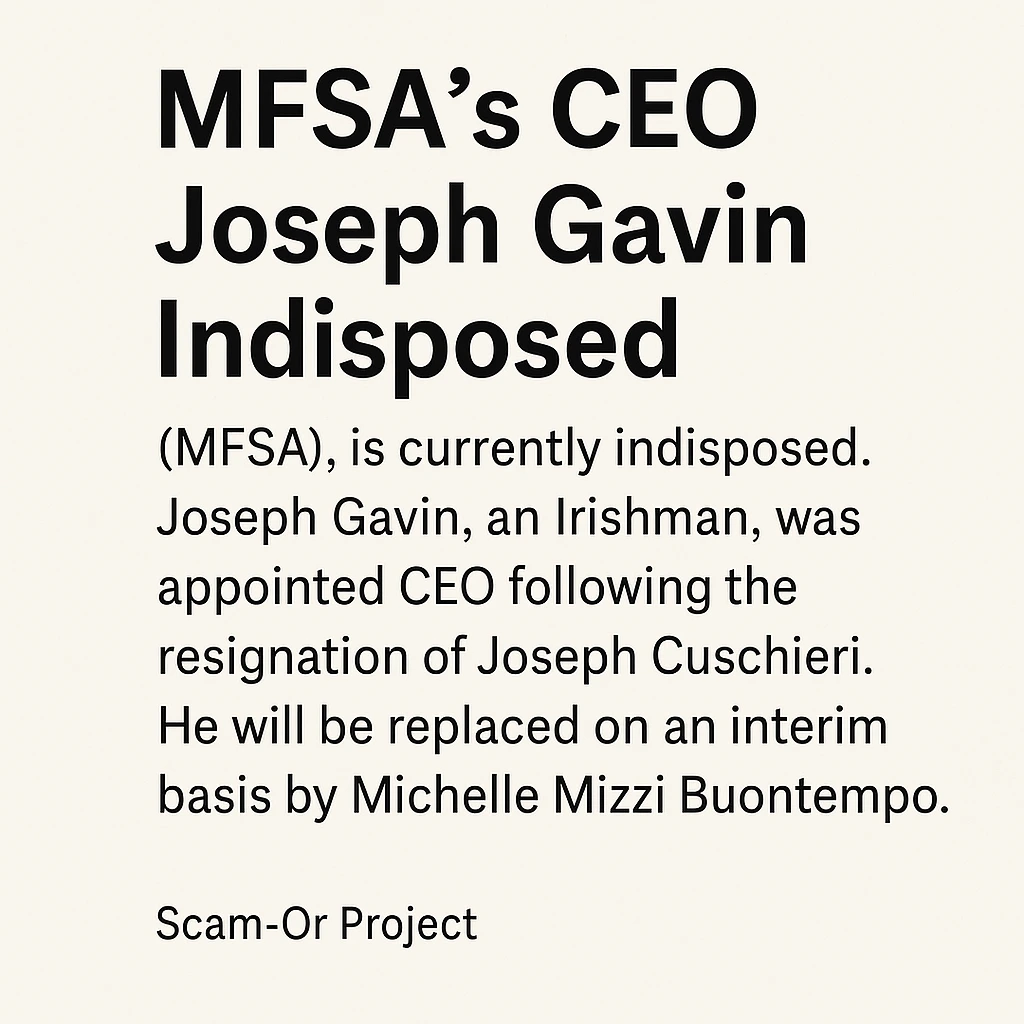Leadership Uncertainty at MFSA
The Malta Financial Services Authority (MFSA) has issued a brief and ambiguous statement announcing that its CEO, Joseph Gavin, is currently “indisposed”. The lack of clarity has raised eyebrows, especially within Malta’s tightly scrutinized financial sector. Gavin, an Irish national, took over the CEO position after the controversial resignation of Joseph Cuschieri and was reportedly earning an annual salary package of approximately €150,000.
Unexpected Succession: Not Buttigieg, But Buontempo
Contrary to expectations, Christopher Buttigieg will not be stepping into the CEO role during Gavin’s absence. Instead, the Authority has appointed Michelle Mizzi Buontempo, a long-standing MFSA executive.
Buttigieg had previously served as interim CEO following Cuschieri’s departure, but his current situation complicates any return to leadership. He is facing legal action brought by a major Maltese insurance company, which has made serious allegations against him. His rapid ascent through the ranks of MFSA occurred during Cuschieri’s leadership, under whom he received a series of promotions.
Cuschieri had also appointed his close associate, Edwina Licari, to a €100,000/year role within the Authority. Both were known for extensive international travel funded by Maltese taxpayers.
Michelle Mizzi Buontempo’s Controversial Track Record
While Buontempo is no stranger to the Authority, her legacy is not without criticism. She has been linked to MFSA’s inaction regarding Pilatus Bank, a now-shuttered financial institution embroiled in scandal. Despite multiple media exposés and public outcry, no regulatory action was taken under her oversight.
Gavin’s Public Backlash
Joseph Gavin has faced increased pressure from financial entities in Malta, particularly after a notorious interview where he unexpectedly walked out without answering key questions. Ironically, the interview was part of a PR campaign initiated by Gavin himself and organized by his media advisor, Vanessa Macdonald.
Final Note
Gavin’s current absence, the opaque nature of internal appointments, and the regulatory authority’s history of questionable decisions all continue to cast doubt on MFSA’s integrity and effectiveness.


